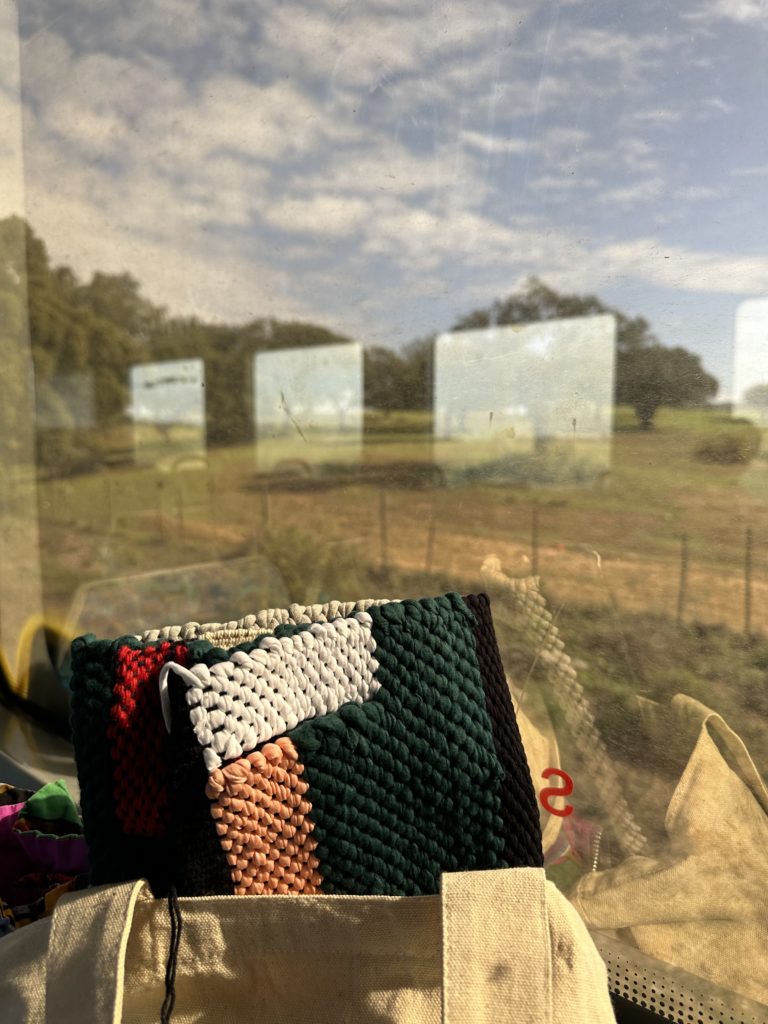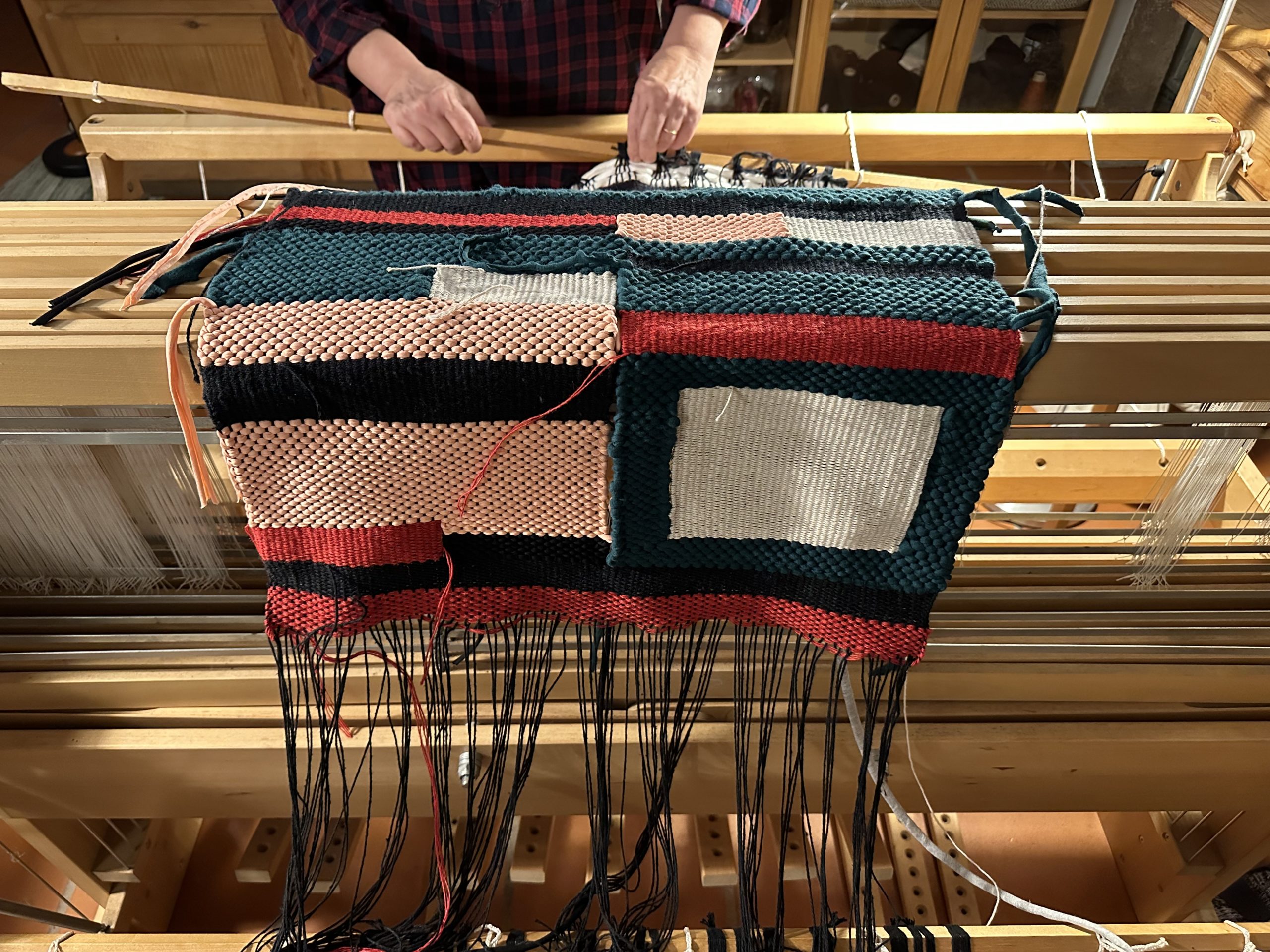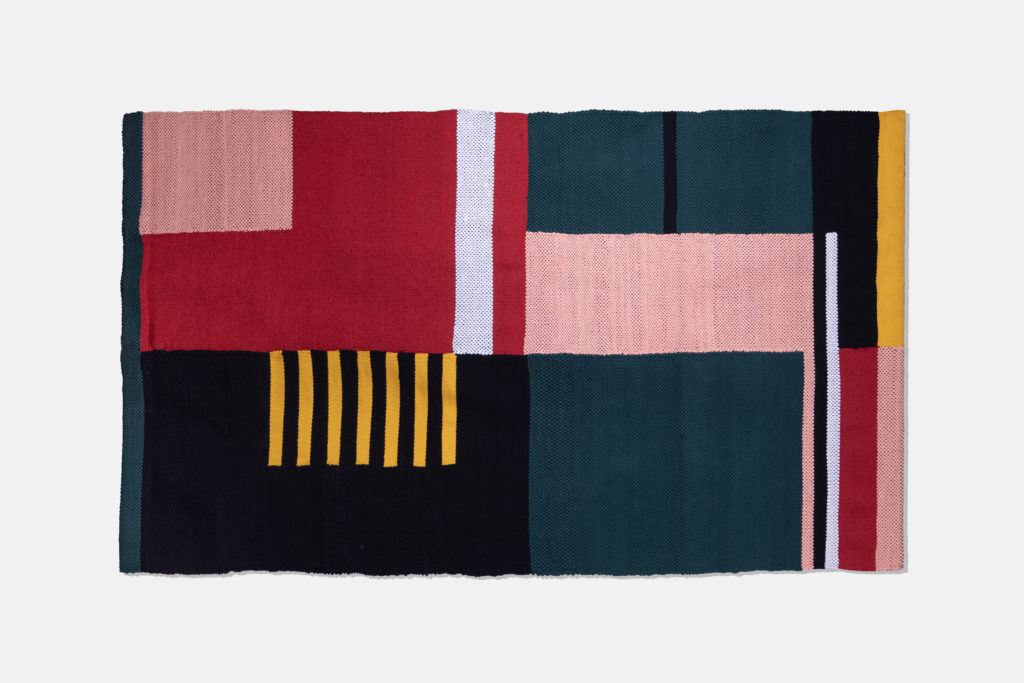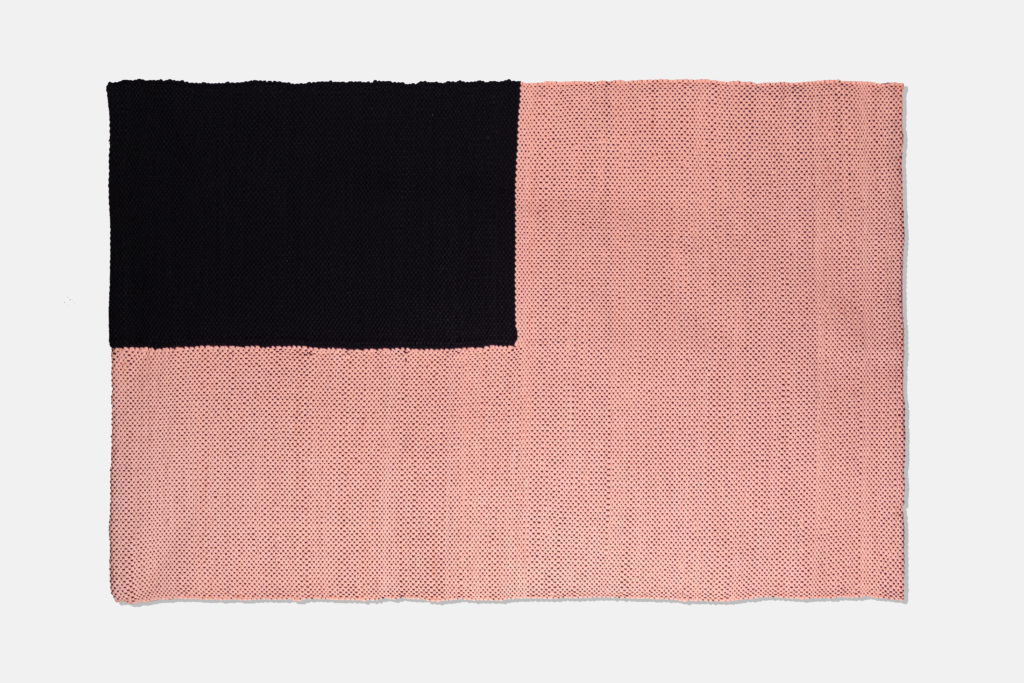Preserving Heritage, Weaving Sustainability. Handcrafted in Portugal.
At the Textiles Evolution Laboratory of Art (TELA), we design sustainably crafted pieces that not only showcase European cultural heritage and traditional craftsmanship, but also respect our planet’s limits and support social well-being. Grounded in partnerships, we create a community that values sustainability and cultural preservation.
We hope to empower everyone towards a more mindful and conscious way of living. Join us on this journey.


- The Idea Behind the Project:
Crafted with passion and expertise, the pieces of the TELA project weave the work of three different artists. Together, they are inspired by the weaving practices of Portugal and through the project, reduce the environmental impact of the local textile industry. The art pieces are designed using textile surplus from the fashion industry and focus on safe and fair work relations.
Represented by Simone Simonato (founder of SICA UPCYCLING DESIGN®), TELA is a replication of the culturally sustainable fashion approach the brand developed in Brazil and Bangladesh. This approach entails developing “educational spaces for knowledge exchange and training new techniques to artisans and craftspeople. It facilitates cross-cultural access to textile knowledge and disseminates this knowledge within the community at large, which enables communities to contribute with their culturally sustainable know-how in other areas and partnerships.” (Cultural Sustainability Policy ©SICA UPCYCLING DESIGN 2023)
The partnership with Isabel Cartaxo (https://icartaxo.webnode.pt/) allowed the project to benefit from her vast experience in weaving. It also provided her an opportunity to expand her knowledge through the use of new materials, which were by-product textiles from RDD Textiles, TELA’s local partner.
During the multidisciplinary TELA workshop, visual artist Kitra (https://kitrakitra.tumblr.com/) challenged the use of materials and techniques that ultimately allowed for innovation around weaving techniques. He also designed TELA’s collection patterns, which were inspired by the aesthetics of flags- emphasizing focus on the vertical and horizontal lines that represent universal values.
Kitra quotes, “Flags are rich in symbolism, representing nations, cultures, and ideologies. Their designs often evoke strong emotions and associations. By incorporating elements of flags into rug design, I infused layers of meaning and visual interest into these pieces.”
The notion of abstract identity adds another layer of depth to this concept. Abstract identity suggests that our sense of self and belonging transcends superficial differences such as language, religion, or ethnicity. It emphasizes shared human experiences and connections on a deeper, more universal level. In the context of rug design, this concept suggests that the patterns and motifs can speak to everyone, regardless of their background or beliefs. It fosters inclusivity and a sense of unity among diverse individuals, celebrating the beauty of diversity while highlighting our common humanity.
Overall, the combination of flag-inspired design and abstract identity in these rugs create a compelling narrative that speaks to the universal human experience and the power of design that transcends boundaries.










